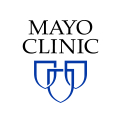Safety and Efficacy Comparison of Docetaxel and Ixabepilone in Non Metastatic Poor Prognosis Breast Cancer
| Status: | Active, not recruiting |
|---|---|
| Conditions: | Breast Cancer, Cancer |
| Therapuetic Areas: | Oncology |
| Healthy: | No |
| Age Range: | 18 - 70 |
| Updated: | 10/17/2018 |
| Start Date: | September 2007 |
| End Date: | September 2019 |
Randomized, Open Label, Multicentric Phase III Evaluating the Benefit of a Sequential Regimen Associating FEC 100 and Ixabepilone in Adjuvant Treatment of Non Metastatic, Poor Prognosis Breast Cancer Defined as Triple-negative Tumor [HER2 Negative - ER Negative - PR Negative] or [HER2 Negative and PR Negative] Tumor; in Node Positive or Node Negative Patients.
RATIONALE: Drugs used in chemotherapy work in different ways to stop the growth of tumor
cells, either by killing the cells or by stopping them from dividing. Giving more than one
drug (combination chemotherapy) and giving them after surgery may kill any tumor cells
remaining after surgery. It is not yet known whether docetaxel is more effective than
ixabepilone when given after surgery and combination chemotherapy in treating breast cancer.
PURPOSE: This randomized phase III trial is studying giving combination chemotherapy followed
by docetaxel or ixabepilone to compare how well they work in treating patients who have
undergone surgery for nonmetastatic breast cancer.
cells, either by killing the cells or by stopping them from dividing. Giving more than one
drug (combination chemotherapy) and giving them after surgery may kill any tumor cells
remaining after surgery. It is not yet known whether docetaxel is more effective than
ixabepilone when given after surgery and combination chemotherapy in treating breast cancer.
PURPOSE: This randomized phase III trial is studying giving combination chemotherapy followed
by docetaxel or ixabepilone to compare how well they work in treating patients who have
undergone surgery for nonmetastatic breast cancer.
OBJECTIVES:
Primary
- To evaluate the benefit from sequential administration of 3 courses of combination
chemotherapy (FEC100) followed by 3 courses of ixabepilone versus docetaxel on the
5-year disease-free survival of women with nonmetastatic, poor-prognosis breast cancer.
Secondary
- To compare the 5-year distant metastasis-free survival.
- To compare the 5-year event-free survival.
- To compare the 5-year overall survival.
- To compare the safety profiles for the two chemotherapy regimens.
- To identify and/or validate predictive-gene expression profiles of clinical
response/resistance to the two treatment regimens.
- To bank frozen and fixed tumor and frozen serum prospectively for future translational
studies in both genomics and proteomics (transcriptome and proteome analyses, tissue
array analyses).
- To compare the cost-effectiveness of these 2 regimens.
- To compare the quality-of-life of patients treated with these 2 regimens.
OUTLINE: This is a multicenter study. Patients are stratified according to participating
center, menopausal status (pre- vs post-menopausal), and tumor hormone-receptor status
(triple-negative vs progesterone-receptor negative, HER negative, and estrogen-receptor [ER]
positive). Patients are randomized to 1 of 2 treatment arms.
- Arm I: Patients receive epirubicin hydrochloride IV, fluorouracil IV, and
cyclophosphamide IV every 3 weeks in courses 1-3 and docetaxel IV alone every 3 weeks in
courses 4-6.
- Arm II: Patients receive treatment in courses 1-3 as in arm I and ixabepilone IV alone
every 3 weeks in courses 4-6.
In both arms, courses repeat every 21 days in the absence of disease progression or
unacceptable toxicity.
Patients also complete a quality of life questionnaire periodically.
After completion of study treatment, patients are followed periodically for up to 10 years.
Primary
- To evaluate the benefit from sequential administration of 3 courses of combination
chemotherapy (FEC100) followed by 3 courses of ixabepilone versus docetaxel on the
5-year disease-free survival of women with nonmetastatic, poor-prognosis breast cancer.
Secondary
- To compare the 5-year distant metastasis-free survival.
- To compare the 5-year event-free survival.
- To compare the 5-year overall survival.
- To compare the safety profiles for the two chemotherapy regimens.
- To identify and/or validate predictive-gene expression profiles of clinical
response/resistance to the two treatment regimens.
- To bank frozen and fixed tumor and frozen serum prospectively for future translational
studies in both genomics and proteomics (transcriptome and proteome analyses, tissue
array analyses).
- To compare the cost-effectiveness of these 2 regimens.
- To compare the quality-of-life of patients treated with these 2 regimens.
OUTLINE: This is a multicenter study. Patients are stratified according to participating
center, menopausal status (pre- vs post-menopausal), and tumor hormone-receptor status
(triple-negative vs progesterone-receptor negative, HER negative, and estrogen-receptor [ER]
positive). Patients are randomized to 1 of 2 treatment arms.
- Arm I: Patients receive epirubicin hydrochloride IV, fluorouracil IV, and
cyclophosphamide IV every 3 weeks in courses 1-3 and docetaxel IV alone every 3 weeks in
courses 4-6.
- Arm II: Patients receive treatment in courses 1-3 as in arm I and ixabepilone IV alone
every 3 weeks in courses 4-6.
In both arms, courses repeat every 21 days in the absence of disease progression or
unacceptable toxicity.
Patients also complete a quality of life questionnaire periodically.
After completion of study treatment, patients are followed periodically for up to 10 years.
DISEASE CHARACTERISTICS:
Inclusion criteria:
- Histologically proven invasive unilateral breast cancer (regardless of the type)
- Initial clinical condition compatible with complete initial resection
- No residual macro or microscopic tumor after surgical excision
- Node-positive disease (i.e., positive sentinel node or positive axillary clearance)
(N+) or node-negative disease (-) meeting the following criteria :
- Stage II or III disease
- pT >20 mm (T1-4)
- Patients must meet 1 of the following hormone-receptor criteria:
- Node-positive patients: triple-negative* tumor (HER2 negative, estrogen-receptor
[ER] negative, and progesterone receptor [PR] negative) OR double-negative (HER2
negative, PR negative, and ER+)
- Node-negative patients: triple-negative* tumor only
- NOTE: *Hormone-receptor negativity is defined as ER <10% and PR <10% by IHC and HER2
negativity is defined as IHC 0-1+ OR IHC 2+ and FISH or CISH negative
- Must be able to begin chemotherapy no later than day 49 after the initial surgery
Exclusion criteria:
- Clinically or radiologically detectable metastases (M0)
- Bilateral breast cancer or contralateral ductal carcinoma in situ
- Any metastatic impairment, including homolateral subclavicular node involvement,
regardless of its type
- Any tumor ≥T4a (cutaneous invasion, deep adherence, inflammatory breast cancer)
- HER 2 overexpression defined as IHC 3+ OR IHC 2+ and FISH or CISH positive
- Any clinically or radiologically suspect and non-explored damage to the contralateral
breast
PATIENT CHARACTERISTICS:
Inclusion criteria:
- Female
- Pre- or postmenopausal
- ECOG performance status 0-1
- Peripheral neuropathy ≤grade 1
- Neutrophil count ≥2,000/mm³
- Platelet count ≥100,000/mm³
- Hemoglobin >9 g/dL
- AST and ALT ≤1.5 times upper limit of normal (ULN)
- Alkaline phosphatase ≤2.5 times ULN
- Total bilirubin ≤1.0 times ULN
- Serum creatinine ≤1.5 times ULN
- LVEF ≥50% by MUGA scan or echocardiography
- Not pregnant or nursing
- Negative pregnancy test
- Fertile patients must use effective contraception during and for up to 8 weeks after
completion of study treatment
Exclusion criteria:
- Previous cancer (except cutaneous baso-cellular epithelioma or uterine peripheral
epithelioma) in the preceding 5 years, including invasive contralateral breast cancer
- Patients with any other concurrent severe and/or uncontrolled medical disease or
infection that could compromise participation in the study
- Clinically significant cardiovascular disease within the past 6 months including any
of the following:
- Unstable angina
- Congestive heart failure
- Uncontrolled hypertension (i.e., blood pressure >150/90 mm Hg)
- Myocardial infarction
- Cerebral vascular accidents
- Known prior severe hypersensitivity reactions to agents containing Cremophor EL
- Patients with any psychological, familial, sociological, or geographical condition
potentially hampering compliance with the study protocol and follow-up schedule
- Patients deprived of liberty or placed under the authority of a tutor
PRIOR CONCURRENT THERAPY:
- At least 2 weeks since prior minor surgery (excluding breast biopsy) and adequately
recovered
- At least 3 weeks since prior major surgery and adequately recovered
- No prior chemotherapy, hormonal therapy, or radiotherapy
- More than 72 hours since prior and no concurrent treatment with any of the following
strong inhibitors of CYP3A4:
- Amiodarone
- Clarithromycin
- Amprenavir
- Delavirdine
- Voriconazole
- Erythromycin
- Fluconazole
- Itraconazole
- Ketoconazole
- Indinavir
- Nelfinavir
- Ritonavir
- Saquinavir
- No concurrent participation in another therapeutic trial involving an experimental
drug
We found this trial at
18
sites
Mayo Clinic Scottsdale Mayo Clinic Arizona was the second Mayo practice to be established outside...
Click here to add this to my saved trials
Click here to add this to my saved trials
Click here to add this to my saved trials
Click here to add this to my saved trials
Click here to add this to my saved trials
Click here to add this to my saved trials
Click here to add this to my saved trials
Click here to add this to my saved trials
Lincoln, Nebraska 68510
Click here to add this to my saved trials
Click here to add this to my saved trials
Click here to add this to my saved trials
Mayo Clinic Cancer Center The Mayo Clinic Cancer Center is a National Cancer Institute-designated comprehensive...
Click here to add this to my saved trials
Click here to add this to my saved trials
Siouxland Hematology-Oncology Associates, LLP Siouxland Hematology-Oncology Associates (SHOA) provides medical oncology treatment. In addition to...
Click here to add this to my saved trials
Click here to add this to my saved trials
Click here to add this to my saved trials


